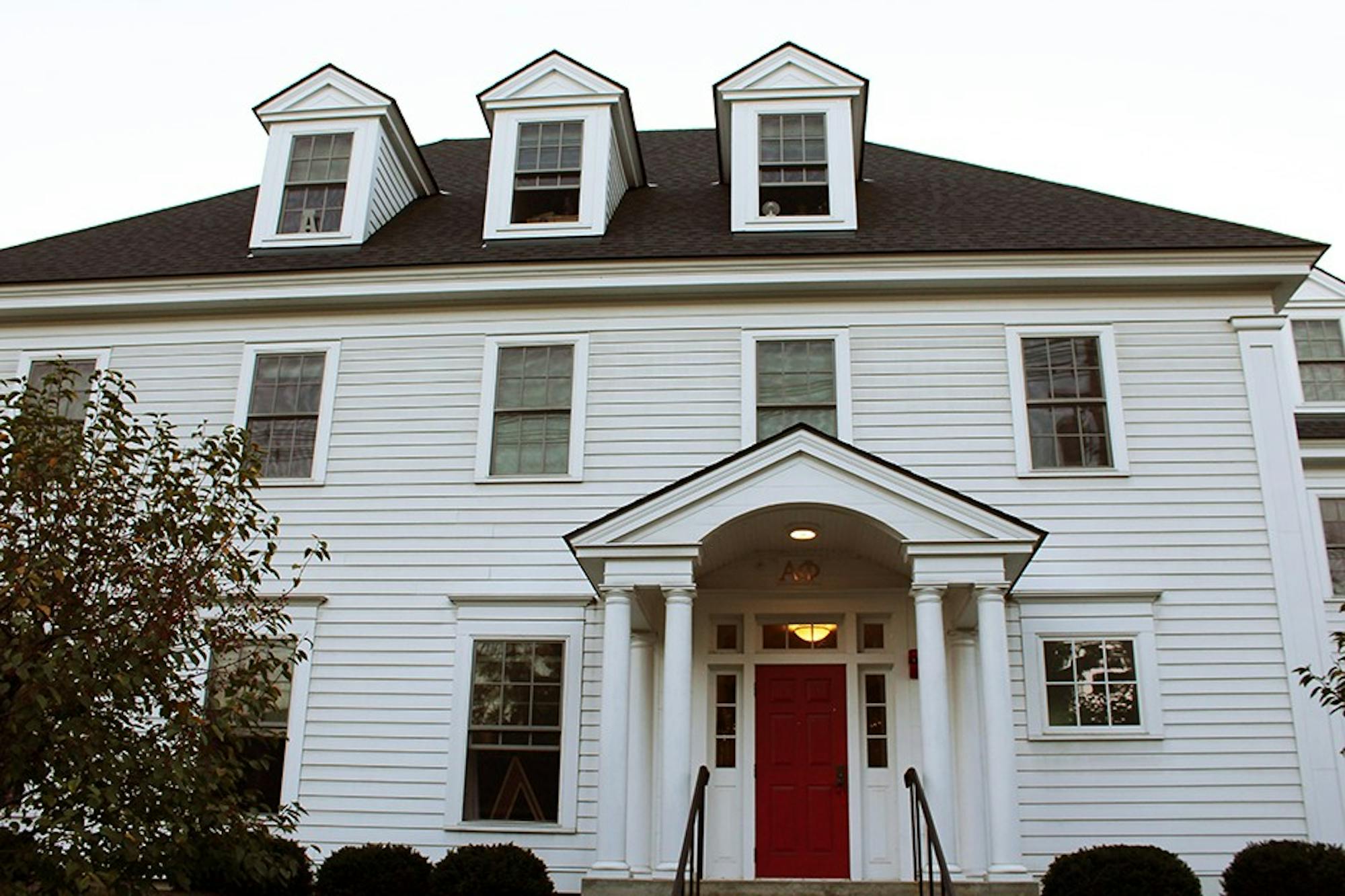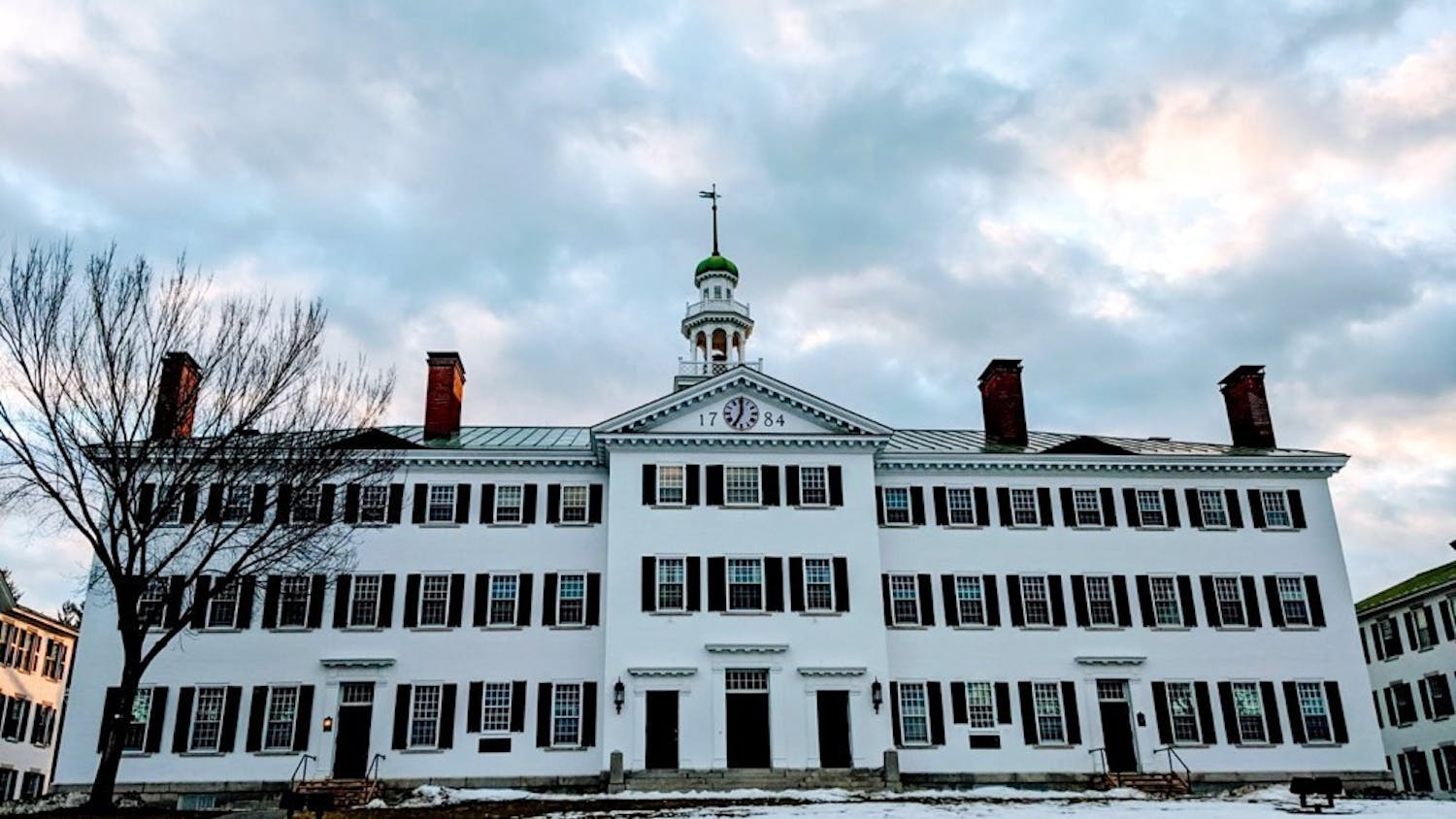This year, 394 women registered for Inter-Sorority Council sorority recruitment, up from 345 last fall and 346 in 2015, according to the director of the Office of Greek Life Brian Joyce. 277 women received bids from the seven houses participating in ISC recruitment.
Fifty bids were extended at Alpha Phi sorority, 44 at Alpha Xi Delta sorority, 42 at Chi Delta sorority, nine at Kappa Delta sorority, 44 at Kappa Delta Epsilon sorority, 46 at Kappa Kappa Gamma sorority and 42 at Sigma Delta sorority, according to Joyce.
Epsilon Kappa Theta sorority, which participates in a shake out process as opposed to formal recruitment, extended 25 bids. During two shake out events, PNMs visit the house and talk to members.
Last year, 277 women received bids through formal recruitment, and 273 received bids the year before. While APhi, AXiD, KD, KDE, Kappa and Sigma Delt all had new member classes larger than those in fall 2016, Chi Delt maintained the same size as last fall.
Following a series of town halls last spring, the ISC decided to modify the structure of the bidding process, with the changes implemented this fall. Kayleigh Abbott ’20, who received a bid from APhi this fall, said the new system allowed for greater flexibility.
“The open house system was great because it was really flexible to [potential new members’] schedules,” Abbott said.
This year, the format of ISC recruitment also changed to a more open-house cycle. With the new system, women first visit the seven sororities that participate in formal recruitment during open houses and are not scheduled into time slots. After the end of the first round, PNMs select their top four preferences and then are algorithmically matched to a maximum of four houses. These matches can then be revisited during the second round.
PNMs could stay for between 30 minutes and one and a half hours during round one and between 30 minutes and two hours during round two, according to AXiD president Katherine Flessel ’18.
“[Recruitment] was a lot more casual this year, in [which] girls could go to whatever houses they wanted whenever and however long,” said Kalei Akau ’18, president of Sigma Delt sorority, said.
Sigma Delt re-adopted the regular rush system this fall after hosting shakeouts in fall 2016 to collaborate more with other sororities, Akau said.
“It wasn’t super beneficial for [Sigma Delt] to be completely outside and doing our own thing, so that was a big reason why we were back into doing rush,” Akau said
Akau also noted that the change to the rush system was influenced by Sigma Delt’s system of shakeouts. She added that her house and other sororities thought this rush system could be “better and more empowering.”
President of the Inter-Sorority Council Samantha Maltais ’18 said that the newly implemented changes were designed to be more accommodating to potential new members.
“[Potential new members’] agency is very limiting,” Maltais said. “[The old process] doesn’t give you a lot of space for adjusting to your own schedule.”
Akau said that adopting the new system was a bit difficult during the first round.
“I think it was a bit of an adjustment period,” Akau said. “Round 1 we didn’t anticipate how overwhelmed all the houses would be.”
To address the issue of overcrowding and to ensure that the rush environment was a safe space for both introverted and extroverted potential new members, Maltais said that RSVP lists were established after Round 1.
Potential new members could sign up on OrgSync and select the parties they wanted to attend that fit with their schedule. With these reservations, the numbers did not get out of hand, Maltais said.
Alexandra Grasso ’20, who accepted a bid at KDE, said that overcrowding during the first round was an issue.
“If you happened to go at a crowded time you could be in a situation where there was one sister in a house talking to five potential new members, and if you’re not the loudest person in the room, that can be kind of difficult,” Grasso said.
Both Grasso and Abbott said that they believed the system of rushing a fraternity, which involves attending a shake out, is more effective. Before a potential new members rushes a fraternity, the brothers try to tell them their chances of getting into the house, Abbott said.
“I think if the girls’ system was like the guys’ system, it might have the potential to be fairer,” Abbott said. “I know a lot of girls that ended up dropping rush because they thought they had a good chance getting in somewhere and then they actually didn’t.”
While many men visit the fraternity they are going to rush in the spring, many women do not have the opportunity to get to know the sorority houses and build relationships with current sisters, Grasso said.
“It can be hard for the person rushing to see the personality of the house, so in that way the sorority system can be difficult,” Grasso said.
With the large size of the current freshman class and possibility of the College expanding, Maltais said that the Greek system will have to adjust.
“The last thing that most Greek leaders want to see is increased exclusivity,” Maltais said. “There will definitely be [a] need for raising those house [class sizes] so we can make sure that we don’t have to lose PNMs in the process.”
Akau said that Sigma Delt wanted to have a bigger new member class this year and supports the diversity that a larger class brings to the community.
“Growing bigger and bigger is great because there is more diversity, but also how to continue that community with everyone is a challenge that will arise from that,” Akau said.
Alec is a freshman from Hartford, CT and plans to major in Economics or Biology. In high school Alec served as one of the Managing Editors of his school newspaper and hopes to continue writing and meeting new people while part of the D. On campus, Alec is involved in DartMun, the Dartmouth Investment Philanthropy Program, and the Club Ski team. In his spare time, Alec likes to cook and explore the outdoors.




